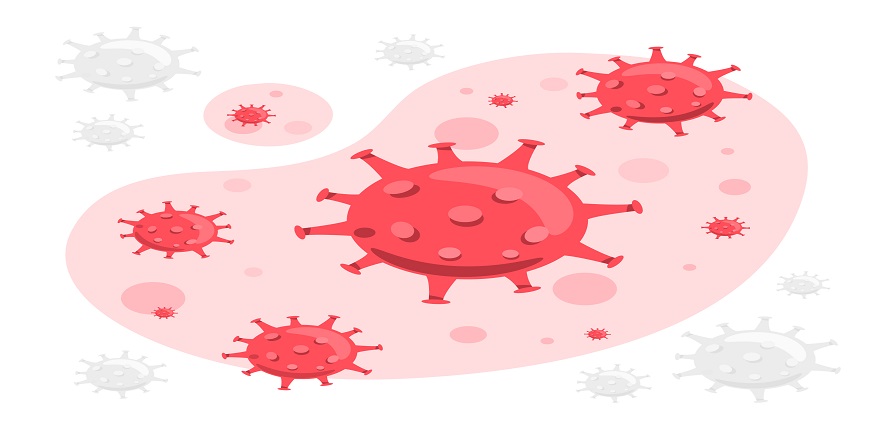





No lab centers are available in this city

Ebola virus disease - a name that sends shivers down the spine of many. This deadly disease has caused widespread fear and panic across the world, with outbreaks occurring in various countries over the years. The Ebola virus is highly contagious and can cause severe illness, often leading to death within days of infection. But what exactly is Ebola? What are its symptoms, causes, and how can it be treated? In this blog post, we'll explore everything you need to know about the Ebola virus disease and how you can protect yourself from it. So sit tight as we take an informative journey into this terrifying global health threat!
Ebola virus disease (EVD) is a severe and often fatal illness caused by the Ebola virus. The virus was first identified in 1976 during an outbreak near the Ebola River in what is now the Democratic Republic of Congo. Since then, there have been several outbreaks of EVD across Africa.
The Ebola virus belongs to a family of viruses known as Filoviridae. It spreads through contact with bodily fluids such as blood, urine, saliva, sweat or feces from infected animals or humans.
The Ebola virus disease is caused by a family of viruses known as Filoviridae. There are five different species of the Ebola virus, each named after the region where they were first found. These include:
Ebola virus disease is caused by the Ebola virus, which belongs to the Filoviridae family. The virus is spread through direct contact with the bodily fluids of an infected person or animal. This includes blood, saliva, sweat, vomit and feces.
The natural reservoir for the Ebola virus is believed to be fruit bats. These animals are not affected by the virus but can transmit it to other animals or humans who come into contact with them. Other wild animals such as monkeys and apes can also become infected with Ebola.
Human-to-human transmission occurs when a person comes into contact with an infected person's body fluids during their illness or after death. People who have died from Ebola are highly contagious and proper handling of their bodies is essential in preventing further spread of the disease.
Ebola virus disease has a high mortality rate and can quickly become life-threatening. The symptoms of Ebola virus disease are initially similar to those of the flu, which can make it difficult to diagnose early on.
In the first stages of Ebola virus disease, an infected person may experience fever, headache, muscle pain, fatigue and sore throat. They may also develop vomiting, diarrhea or a rash. These symptoms typically appear between two days and three weeks after contracting the virus.
As the disease progresses, more severe symptoms occur such as abdominal pain, chest pain and difficulty breathing. In some cases, patients may experience internal bleeding or organ failure resulting in death.
It's important to note that not everyone who contracts Ebola will display all these symptoms. Some people have mild cases with only minor symptoms while others become severely ill.
Treating Ebola virus disease requires immediate medical attention. There is currently no specific treatment or cure for Ebola, but supportive care can help relieve symptoms and improve outcomes.
Treatment involves managing the patient's fluid and electrolyte balance, maintaining blood pressure, and providing oxygen therapy as needed. Patients may also receive experimental treatments like monoclonal antibodies that target the virus.
Antibiotics are not effective against viruses, including Ebola, so they are not used to treat the disease directly. However, antibiotics may be prescribed if a bacterial infection develops in addition to Ebola.
Patients with severe cases of Ebola may require intensive care in a hospital setting to manage their symptoms and prevent complications like organ failure or bleeding disorders.
Preventing the spread of Ebola virus disease is crucial to stop its transmission. The most effective prevention measures include good hygiene practices such as washing hands regularly with soap and water, using hand sanitizers, avoiding contact with bodily fluids of people infected with Ebola virus, and avoiding direct contact with wild animals that might be carriers of the virus.
Another important measure is vaccination against the Ebola virus. Vaccines have been developed for healthcare workers who are at high risk of getting the disease while treating patients in affected areas. However, it's essential to note that vaccines alone cannot prevent or control an outbreak.
As we come to the end of this blog post on Ebola virus disease, it's important to remember that the outbreak of this deadly disease is still a looming threat. While there are treatments available for those who contract the virus, prevention is still key in stopping its spread.
The different types of Ebola virus disease can have varying degrees of severity and symptoms, making it difficult to diagnose and treat. However, by being aware of the signs and taking precautions such as practicing good hygiene and avoiding contact with infected individuals or animals, we can work towards preventing further outbreaks.
 Allergy Test
Allergy Test
 Anemia Test
Anemia Test
 Auto immune
Auto immune
 Blood disorder
Blood disorder
 Bone and Joint
Bone and Joint
 Cancer Test
Cancer Test
 Cardiology Test
Cardiology Test
 Covid Recovery
Covid Recovery
 Dengue Test
Dengue Test
 Depression
Depression
 Diabetes Test
Diabetes Test
 Fatigue
Fatigue
 Fever Test
Fever Test
 Full body
Full body
 Gastro Test
Gastro Test
 Gastrointestinal
Gastrointestinal
 Gynaecology Test
Gynaecology Test
 Heart Test
Heart Test
 HIV Test
HIV Test
 Hormone Test
Hormone Test
 Hypertension
Hypertension
 Immunity Test
Immunity Test
 Infectious Disease
Infectious Disease
 Infertility Test
Infertility Test
 Influenza Test
Influenza Test
 Iron Test
Iron Test
 Kidney Test
Kidney Test
 Liver Test
Liver Test
 Lung Test
Lung Test
 Nephrology
Nephrology
 Obesity
Obesity
 Orthopedics Test
Orthopedics Test
 Physician
Physician
 Pollution Health Checkup
Pollution Health Checkup
 Pregnancy Test
Pregnancy Test
 Prostate Test
Prostate Test
 Senior Citizen Test
Senior Citizen Test
 STD Test
STD Test
 Thyroid Test
Thyroid Test
 Tuberculosis Test
Tuberculosis Test
 Vitamin Test
Vitamin Test
 Women Health Test
Women Health Test
Sign up takes less than 60 secs and gives you access to your offers, orders and lab tests.
Looks like you are not registered with us. Please Sign up to proceed
OTP will be sent to this number by SMS
We have successfully received your details. One of the agents will call you back soon.
 To reach our help desk call 9213188888
To reach our help desk call 9213188888
No Lab Centers are available in this city
Looks like you are not registered with us. Please Sign up to proceed
OTP will be sent to this number by SMS
Not Registered Yet? Signup now.Looks like you are not registered with us. Please Sign up to proceed





 7982100200
7982100200.png)